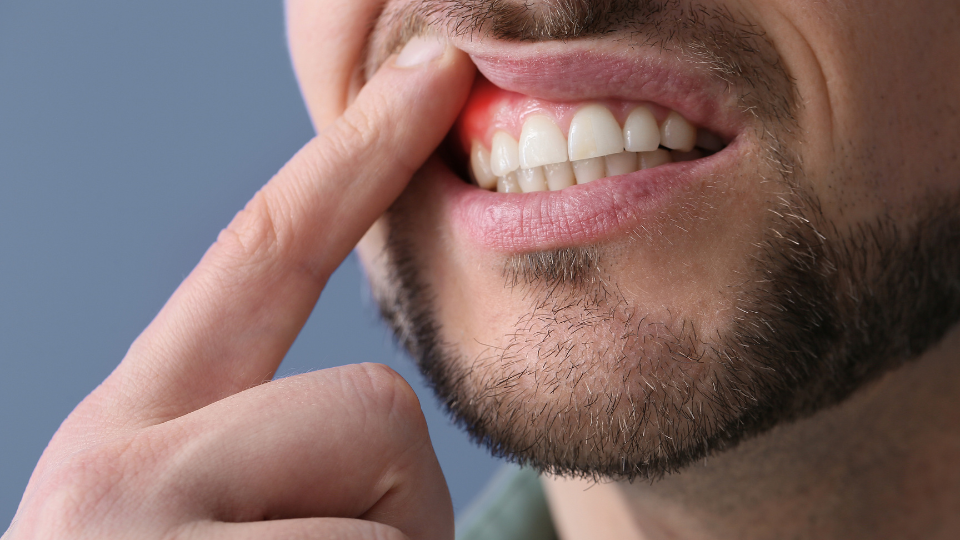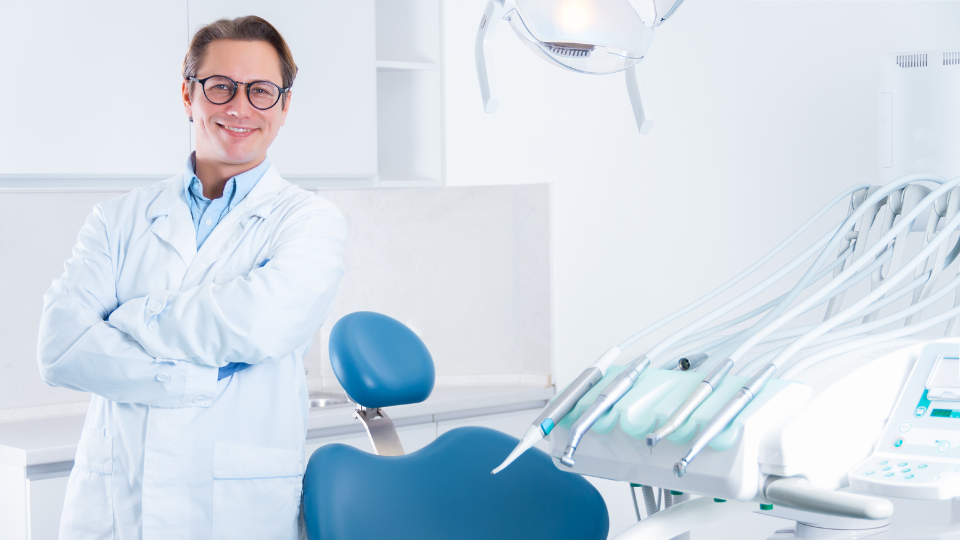Is Periodontal Disease Contagious? What You Need to Know About Gum Health
.png)
Gum disease affects nearly half of adults over 30 in the U.S., yet many people don’t fully understand how it spreads or how it can impact others. If you or a loved one has been diagnosed with periodontal disease, it’s natural to ask: is periodontal disease contagious?
While gum disease doesn’t spread like a cold or the flu, the bacteria that cause it can be transmitted through saliva, especially in close relationships. That means everyday habits like kissing, sharing utensils, or drinking from the same cup could increase the risk of transmission within households.
In this article, we’ll break down the science behind how gum disease works, explain how it can spread, and offer practical steps to help you protect yourself and your loved ones. Whether you’re managing an existing diagnosis or focused on prevention, understanding this condition is the key to long-term oral health.
What Is Periodontal Disease?
Periodontal disease, also known as gum disease, is a chronic bacterial infection that affects the tissues supporting your teeth including the gums and jawbone. It typically begins with gingivitis, the mild and reversible stage marked by gum inflammation and bleeding. If left untreated, it progresses to periodontitis, where the infection moves below the gumline, leading to bone loss, gum recession, and eventually, tooth loss.
Many people don’t realize they have gum disease until it becomes advanced. Symptoms include:
- Red, swollen, or bleeding gums
- Persistent bad breath
- Gum recession
- Loose teeth or changes in bite alignment
And sometimes, gum disease shows up as localized discomfort. In fact, it’s one of the potential causes we address in our blog on 6 Reasons for a Toothache: Understanding the Importance of Routine Dental Care. Often, a toothache is the first sign that something more serious is developing beneath the surface.
Is Periodontal Disease Contagious?
Technically, periodontal disease itself isn’t contagious. You can’t “catch” it from being in the same room as someone or through casual contact. However, the bacteria that cause periodontal disease are transmittable and that’s where the concern lies.
The primary culprit? Saliva.
Research has shown that the oral bacteria responsible for gum disease can be passed from person to person through:
- Kissing
- Sharing utensils, water bottles, or straws
- Using someone else’s toothbrush
- Allowing children to put your fingers (or theirs) in your mouth
This type of transmission is most common within families, romantic partners, or close caregivers and children.
So, while you won’t “catch” gum disease like a virus, you can acquire the bacteria that increase your risk for it especially if your own oral hygiene isn’t strong or if you’re genetically predisposed to gum disease.
Who’s Most at Risk After Exposure?
Being exposed to periodontal bacteria doesn’t automatically mean you’ll develop the disease. Several factors influence whether the bacteria take hold:
1. Oral Hygiene Habits
Poor brushing and flossing allow plaque to accumulate and bacteria to thrive.
2. Smoking or Vaping
Tobacco use is one of the most significant risk factors for periodontal disease and inhibits healing.
3. Chronic Conditions
People with diabetes or compromised immune systems are more vulnerable to oral infections.
4. Stress
Chronic stress can weaken the body’s ability to fight off infections, including gum disease.
5. Genetics
Some people are more prone to inflammation and gum issues due to inherited traits.

How to Prevent the Spread of Periodontal Bacteria
If someone in your household is undergoing treatment for gum disease—or if you are—it’s important to make changes that reduce the risk of bacterial transfer. Here’s how to protect yourself and others:
1. Avoid Sharing Oral Items
Do not share toothbrushes, utensils, floss picks, straws, or water bottles.
2. Replace Toothbrushes Regularly
Every 3 months or immediately after an illness to avoid reinfection.
3. Brush and Floss Daily
A strong oral hygiene routine helps prevent bacteria from taking hold.
4. Use Antimicrobial Mouthwash
This can reduce the overall bacterial load in your mouth, especially after treatment.
5. Encourage Family Checkups
If one person in a household has periodontitis, it’s a good idea for others to be evaluated too—even if they aren’t showing symptoms.
What If You’ve Already Been Exposed?
If you’ve kissed or shared utensils with someone who has gum disease, there’s no need to panic. Exposure alone isn’t a diagnosis. The best step forward is early detection and prevention.
Watch for early warning signs like:
- Bleeding gums when brushing or flossing
- Tender or puffy gums
- Chronic bad breath
- Mild gum recession
Even without symptoms, regular dental checkups are critical. Many cases of gum disease progress silently and are best caught and treated before they cause damage.
Treating Periodontal Disease
The earlier gum disease is detected, the easier it is to treat. At West Soho Dentistry, we offer comprehensive periodontal care tailored to your stage of disease:
- Gingivitis Treatment: Professional cleaning and improved home care
- Scaling and Root Planing: Deep cleaning below the gumline to remove bacteria
- Maintenance Therapy: More frequent cleanings to monitor and maintain gum health
- Referral to Periodontists (if needed): For advanced surgical or regenerative therapy
The goal is not only to stop the disease from progressing, but to restore the health and stability of your gums for the long term.
Trust Your Gum Health to West Soho Dentistry
At West Soho Dentistry in New York, we believe that informed patients are empowered patients. Whether you're navigating a recent diagnosis or simply want to protect your future oral health, our team is here to support you with education, early detection, and personalized care.
We approach every patient with compassion, expertise, and a deep commitment to prevention. If you suspect you may be at risk for gum disease or want peace of mind; let’s take the next step together.
Schedule your appointment today and protect not just your smile, but your overall wellness.


